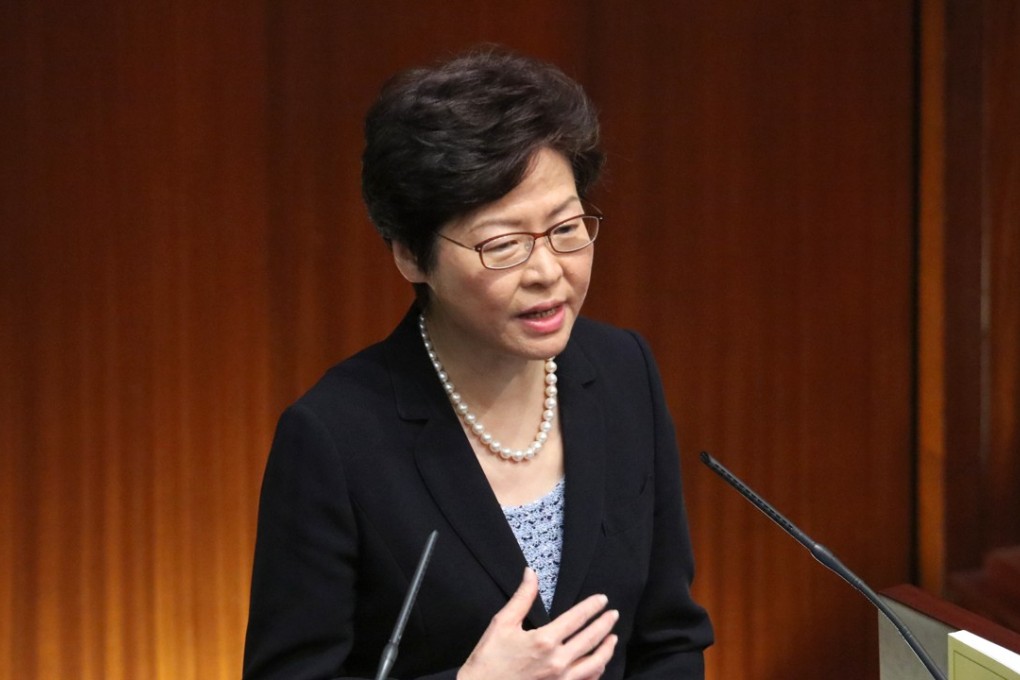My Take | Motion of thanks is quaint but meaningless
Colonial-era practice of thanking the chief executive for delivering a policy address is simply an opportunity for lawmakers to grandstand

For the first time in nine years, a motion of thanks for a policy address has been passed. Chief Executive Carrie Lam Cheng Yuet-ngor managed with her maiden speech what her predecessor, Leung Chun-ying, had not achieved once during his five-year tenure. But it’s no time for Lam to be high-fiving with her officials. It would have passed in the Legislative Council anyway even if three lawmakers from the opposition camp didn’t break ranks and vote for it.
The six localist lawmakers disqualified due to improper oath-taking pretty much guaranteed passage by the pro-establishment side. Tanya Chan, of the Civic Party, has warned Lam not to get too cocky. Still, it’s not insignificant that three opposition figures – all from trade-based constituencies – switched sides.
The Lam administration is pouring billions more in recurrent spending into education and public health care. This means Ip Kin-yuen and Joseph Lee Kok-long would have to vote for the motion because their respective sectors relished the new measures and the money that comes with them. The third opposition lawmaker to vote for the motion was Kenneth Leung of the accountancy sector.
The motion’s passage also means that Lam has successfully sidestepped political landmines.
Still, it’s time to ask whether this annual Legco gesture – a tradition dating from the colonial era – is more trouble than it’s worth. It’s similar to an address-in-reply motion practised in many overseas legislatures. But it’s hardly a parliamentary standard and we don’t have a “normal” or functioning legislature. The annual address, in any case, was only started by the late governor Murray MacLehose.
